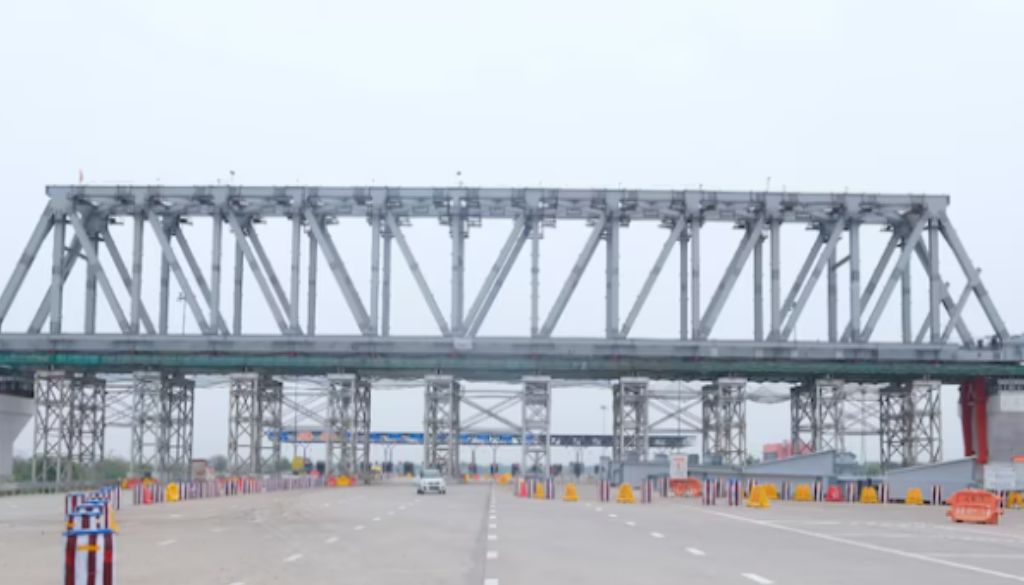India Achieves Milestone in High-Speed Rail: Massive Steel Bridge Installed Over Delhi-Mumbai National Expressway

Mumbai, 24th June 2024: The National High-Speed Rail Corporation Limited (NHSRCL) achieved a significant milestone on Sunday, June 23, by successfully installing a 130-metre-long steel bridge over the Delhi-Mumbai National Expressway near Vadodara, Gujarat. This bridge is a critical component of the Mumbai-Ahmedabad Bullet Train project, highlighting India’s advancements in high-speed rail infrastructure as part of the “Make in India” initiative.
The entire process of launching the bridge, which weighs 3000 metric tons and measures 18 metres in height and 14.9 metres in width, was completed within 24 hours. Despite intermittent breaks to accommodate road traffic, the bridge was seamlessly installed. Fabricated in Wardha, Maharashtra, the bridge was transported to the site using trailers, showcasing its potential to become India’s longest steel bridge over a national highway.
To construct this massive structure, approximately 124,246 Tor-Shear Type High Strength (TTHS) bolts were used. The bridge features a C5 system painting and metallic spherical bearings, ensuring durability for up to 100 years. The on-site assembly involved elevating the bridge 15 metres above ground level using temporary trestles. An automatic mechanism, including two semi-automatic jacks with a capacity of 250 tons each and Mac-alloy bars, facilitated the precise positioning of the bridge.
This project exemplifies meticulous planning and execution, adhering to stringent safety and engineering standards. It combines Japanese technological expertise with India’s local technical and material resources, embodying the essence of the “Make in India” initiative and demonstrating the nation’s growing proficiency in infrastructure development.
This newly installed steel bridge marks the third of 28 bridges planned for the Mumbai-Ahmedabad Bullet Train corridor. The first bridge was launched over National Highway 53 in Surat, followed by another over the Vadodara-Ahmedabad main line of Indian Railways near Nadiad, Gujarat. Steel bridges are particularly suited for spanning highways, expressways, and railway lines, offering advantages over prestressed concrete bridges typically used for spans of 40 to 45 metres, including river crossings.
India’s expertise in fabricating steel bridges for heavy haul and semi-high-speed trains, operating between 100 and 160 km/h, is now being leveraged for the Bullet Train corridor, which will operate at speeds up to 320 km/h. The successful installation of this steel bridge underscores India’s capability to undertake complex infrastructure projects, setting the stage for the country’s future in high-speed rail development.






